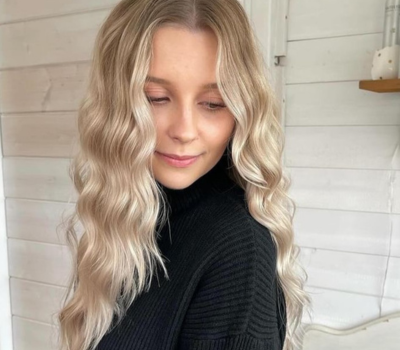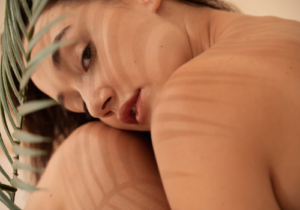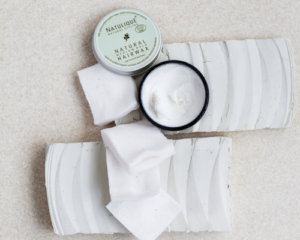Understanding curly hair type
Curly hair needs special attention to stay healthy and well-defined. Getting to know your curl type is essential to choosing the right products and routines. Here are a few tips to help you understand and care for your curly hair.
Recognizing the Characteristics of Curly Hair
Curly hair has specific characteristics that set it apart from other hair types. It tends to be drier and more fragile, as the scalp's natural oils have difficulty working their way through the curls. What's more, curly hair can vary in terms of texture, density and curl shape.
Determining your curl type
Curls can be classified into several types, mainly according to shape and diameter. Here's an overview of the different categories:
- Type 2 : Wavy hair, with S-shaped waves.
- Type 3 : Curly hair, with well-defined spiral curls.
- Type 4 : Frizzy hair, with tight or zigzag curls.
Knowing your curl type will help you choose the right products and styling techniques.
External Factors Affecting the Health of Curly Hair
Several external factors can influence the health of your curly hair:
- Climate : Humidity and temperature can change the shape and texture of your curls.
- Chemical products : Colorants and other chemical treatments can damage the structure of curly hair.
- Styling tools : Excessive heat (hair dryers, straightening irons) can dehydrate and weaken your curls.
Taking these factors into account will help you better protect and maintain your curly hair.
Choosing hair products for curly hair
Moisturizing: The importance of moisture for curly hair
Curly hair naturally tends to be drier than other hair types. This is due to the spiral structure of curls, which prevents the scalp's natural oils from distributing evenly along the strands. Therefore, moisturizing is essential to maintain healthy, defined curls.
Moisturizing products
To moisturize your curly hair, you can use several types of products:
- Moisturizers : These are thick and deeply nourishing.
- Oils : Oils such as coconut oil, argan oil and jojoba oil are excellent for sealing in moisture.
- Hair masks : Used once a week, they provide intense hydration.
Hydration frequency
The frequency of moisturizing depends on the porosity of your hair:
- High porosity : Moisturize your hair at least three times a week.
- Medium porosity : Twice a week is enough.
- Low porosity : Once a week, but use light products to avoid build-up.
Cleaning: How and what to use to clean your curls
Cleaning is a crucial step in maintaining the health of curly hair. However, it's important to choose the right products to avoid drying out your curls.
Gentle Shampoos and Sulfate-free Shampoos
Gentle, sulfate-free shampoos are recommended for curly hair because they cleanse the scalp without stripping the natural oils:
- Gentle shampoos : They contain light cleansing agents that preserve moisture.
- Sulfate-free shampoos : Sulfates can be too harsh for sensitive curls. Opt for shampoos without these foaming agents.
Co-wash: Alternative to shampoo
Co-wash, or wash and condition, is an excellent alternative for curly hair. It gently cleanses while adding moisture:
- Choosing the right conditioner: It should be sufficiently moisturizing but light enough not to weigh down curls.
- Co-wash technique: Massage your scalp with conditioner to remove impurities, then rinse thoroughly.
Styling: Products to define and maintain curls
Styling is crucial to achieving well-defined curls and maintaining their shape. Here are some recommended products:
- Gels : They offer strong hold and help define curls without making them stiff.
- Foams : Ideal for adding volume and lightly defining curls.
- Creams and lotions : Offer soft, moisturizing definition, perfect for naturally loose curls.
How to apply Styling Products
Applying styling products correctly can make a big difference to the final result. Here are a few tips:
<
See also: How to bleach hair naturally?
Curly Hair Care Techniques
Daily Routines
Everyday styling techniques
Introducing daily styling routines helps keep your curls defined and healthy. Here are a few effective techniques:
- Finger detangling: Use your fingers to detangle your hair to preserve curl structure and avoid breakage.
- Moisturizing spray : Use a moisturizing spray every morning to refresh your curls and provide a dose of hydration.
- Plopping : Wrap damp hair in a microfiber towel or soft T-shirt to reduce frizz and define curls.
These light, fast methods help you start the day with well-defined, moisturized curls.
Night Management for Curly Hair
At night, your hair can suffer from friction and dehydration. Here's how to protect your curls while you sleep:
- Use a satin or silk pillowcase: Satin and silk reduce friction, minimizing knots and breakage.
- Pineapple : Gather your curls at the top of your head to avoid rubbing against the pillow. Secure with a satin scarf.
- Satin bonnet: Wearing a satin bonnet allows you to protect your curls all night long, effortlessly.
These night-time practices protect your curls and preserve their shape.
Weekly and Monthly Routines
Hair masks and deep care
To maintain the health of your curly hair, introducing deep care is essential:
- Moisturizing masks : Apply a moisturizing mask once a week to provide intense hydration and repair any damage.
- Protein care : Use protein treatments once or twice a month to strengthen hair structure and prevent breakage.
Alternating between hydration and protein, you maintain the balance needed for healthy curls.
Scalp exfoliation
A healthy scalp is the foundation of healthy hair. Here's how to exfoliate your scalp:
- Hair scrub : Use a hair scrub once a week to remove product residues and dead cells.
- Massage brush : A scalp massage brush improves blood circulation and promotes hair growth.
By maintaining a clean scalp, you optimize the overall health of your hair.
Trimming and balancing
Curly hair requires regular trimming to prevent split ends and maintain curl shape:
- Frequency : Cut every 8 to 12 weeks to remove split ends and refresh the shape of your curls.
- Cutting technique : Prefer a dry cut to see the real shape of the curls and better adapt the cut to their structure.
Maintaining regular curls will keep your hair healthy and well defined.
Protection and Prevention
Protection against external agents
Protecting your hair from external aggressors is essential to maintaining its health and beauty. Here are a few tips to preserve your curls:
- Sun protection : Use a UV protection spray to prevent the sun from damaging your hair.
- Thermal protection : Before using heated tools, always apply a heat protection product.
- Protection against pollution : Rinse your hair on days when you've been exposed to a lot of pollution to remove harmful particles.
These actions help protect your curls from external aggressions and maintain their health.
Curly Hair Care FAQ
What's the best product for defining curls?
Styling gels and creams are excellent products for defining curls. The choice depends on your hair texture and the result you want to achieve.
How often should I cut my curly hair?
We recommend trimming your curly hair every 8 to 12 weeks to eliminate split ends and maintain the shape of your curls.
How many times a week should I wash my curly hair?
It's best to wash curly hair once or twice a week to avoid drying it out. Use mild shampoos or opt for co-wash.
What styling tools should I use for curly hair?
Wide-tooth combs and finger combs are ideal for detangling curly hair without breaking the curls. Avoid fine brushes and heated tools without thermal protection.
How can I reduce frizz in my curly hair?
To reduce frizz, use moisturizing products, avoid touching your hair too often and sleep on a satin or silk pillowcase.





